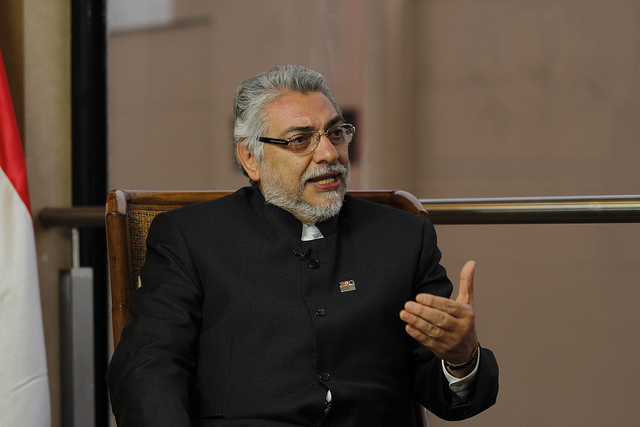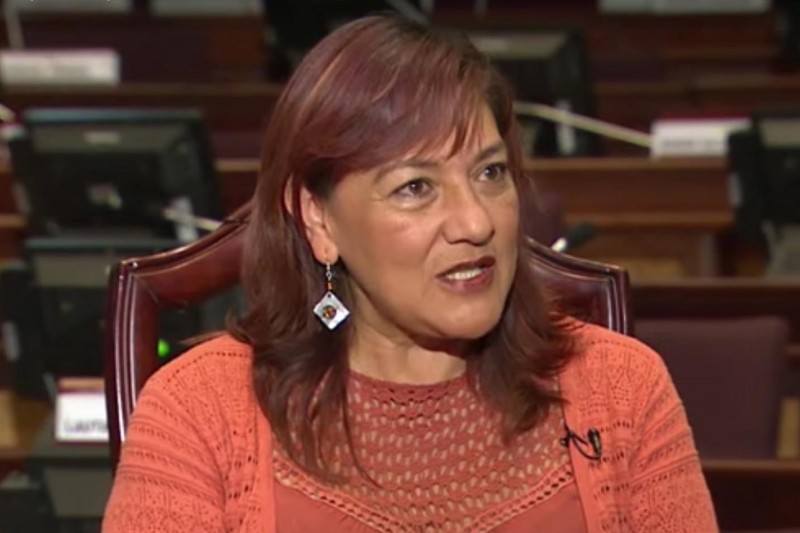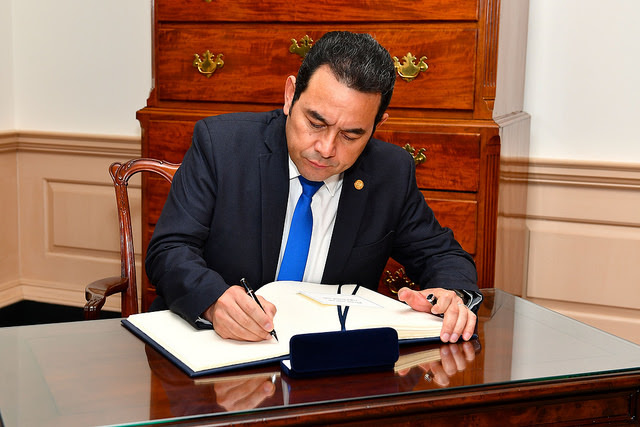
Argentina, Latin America: Week in Review, Southern Cone
Argentina peso continues plunge, falling by 20% in two days
August 31, 2018 By Staff
TODAY IN LATIN AMERICA
ARGENTINA: The peso continued to fall yesterday by more than 13 percent, after a 7 percent drop the day before. The central bank tried to stabilize the currency by raising a key interest rate from 45 percent to 60 percent to no avail.
This is the fourth time the bank increased interest rates four times since April, when a sudden weakening of the peso was caused by a combination of a drought that hurt farm exports, higher energy prices and a strong dollar that led investors to pull funds from emerging markets. At the time, moderate right-wing President Mauricio Macri turned to the International Monetary Fund for a loan that was supposed to be a precautionary measure, but as his administration has begun to implement the IMF’s austerity policies that come with the loan the economic turmoil has continued.
During the afternoon, tens of thousands of university workers and supporting students marched through the streets of Buenos Aires to demand the government raise the wages of public university professors to equal this year’s 30 percent inflation. The rally also protested against the government’s embrace of the IMF’s policies.
HEADLINES FROM THE WESTERN HEMISPHERE
NORTH AMERICA
UNITED STATES: The Trump administration is accusing hundreds, and possibly thousands, of Latinos along the border of using fraudulent birth certificates, according to a report by the Washington Post. The government says that some midwives and physicians along the Texas-Mexico border provided U.S. birth certificates to babies who were actually born in Mexico from the 1950s through the 1990s. There were a series of federal court cases in the 1990s where birth attendants admitted to having provided fraudulent documents and a crackdown began during the Obama administration but ebbed after a settlement case in 2009. The Washington Post says its research suggest a recent dramatic shift in both passport issuance and immigration enforcement.
MEXICO: A mob killed two men rumored of kidnaping children in a small village named San Vicente Boquerón, close to Acatlán de Osorio in the central state of Puebla, on Wednesday. After the rumor started, residents attacked the two men, aged 53 and 21, and the local police took them into custody for their own protection, but a mob of about 150 people stormed the jail and took the men. State prosecutors later said their preliminary investigation suggests two men had not committed any crime. The Puebla state government said local authorities did not follow proper protocol or call for reinforcements as they should have. Such instances of mob killings, or collective justice, have increased in recent years in central Mexico.
CARIBBEAN
PUERTO RICO: A judge ruled yesterday that the U.S. Federal Emergency Management Agency is not required to provide hotel rooms to Puerto Ricans who fled Hurricane Maria until they obtain their own housing. District Judge Timothy Hillman in Worcester, Massachusetts, required FEMA to continue to pay for hotel rooms for the 1,038 families who were evacuated only until Sept. 14, almost a year after the hurricane hit the Caribbean archipelago on Sept. 20, 2017. FEMA had planned to end the program on June 30 but several court decisions had extended it until now.
CENTRAL AMERICA
EL SALVADOR: Authorities have received reports that three Salvadoran teenagers who were separated from their parents after crossing the U.S. border were sexually abused by workers in shelters in Arizona. Deputy Foreign Relations minister for Salvadorans Overseas Liduvina Magarín said the Salvadoran government will provide the families of the children ages 12 to 17 with lawyers so they can decide how to proceed. Magarín said the children are still at the unnamed shelters and her government is pressuring the United States to reunify them with their families.
ANDES
COLOMBIA: The General Attorney’s Office initiated proceedings against 14 executives of Chiquita Brands, the leading distributor of bananas in the United States, for having allegedly funded paramilitary death squads in the northwestern region of Urabá, Antioquia. A year ago, the office had declared the private sector’s financing of the internal conflict as a crime against humanity. The names of the accused were not released but Attorney General Néstor Humberto Martínez said they included Colombian and U.S. citizens and were all high-ranking officials of the company. No arrest warrants have been issued yet. On March 2007, Chiquita Brands agreed to pay a fine of $25 million as part of a settlement with the United States Justice Department for Colombian paramilitary groups in exchange for security.
SOUTHERN CONE
BRAZIL: The electoral court threw out a complaint by former president Luiz Inácio Lula da Silva that accused television networks of ignoring his campaign because he is in jail, even though he is an official candidate in the October presidential race. The court voted 6-1 to reject Lula’s appeal increasing the likelihood that it will declare him ineligible to run due to his corruption conviction.





